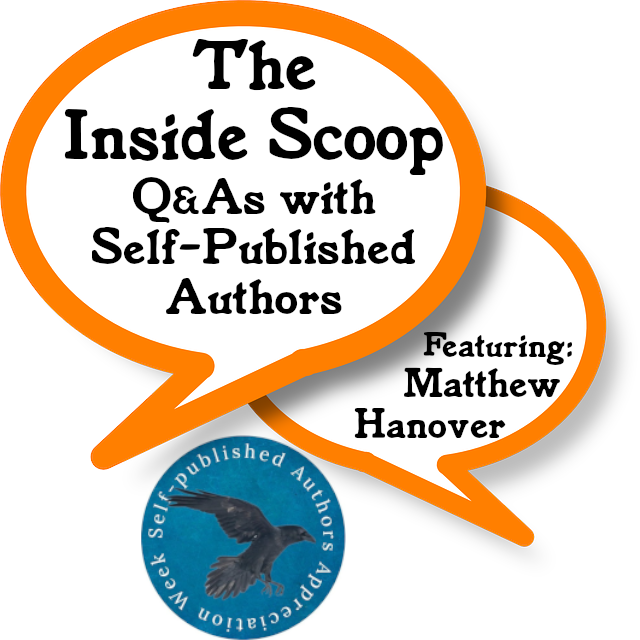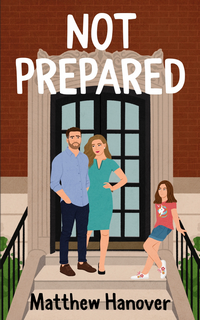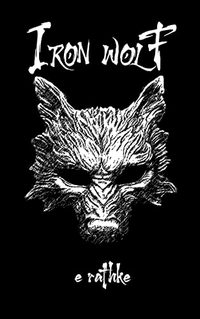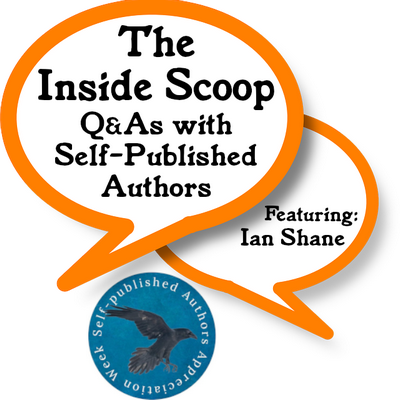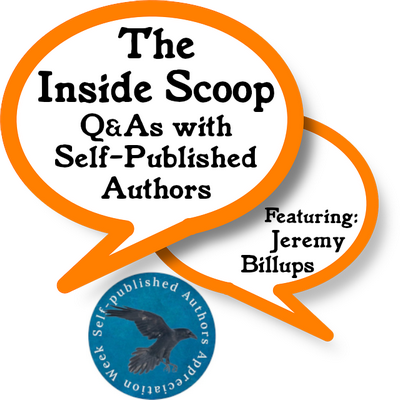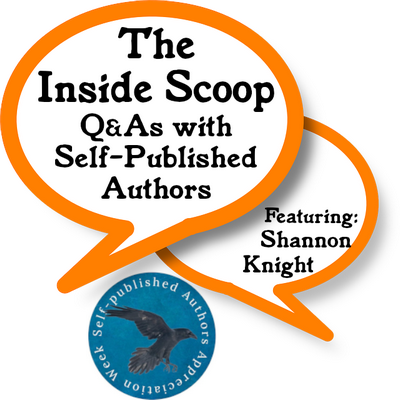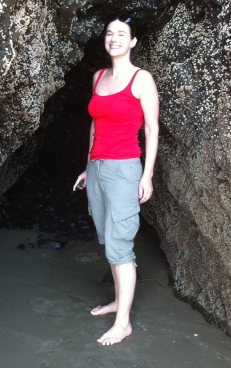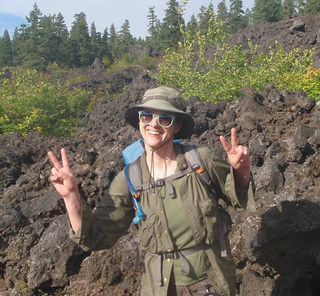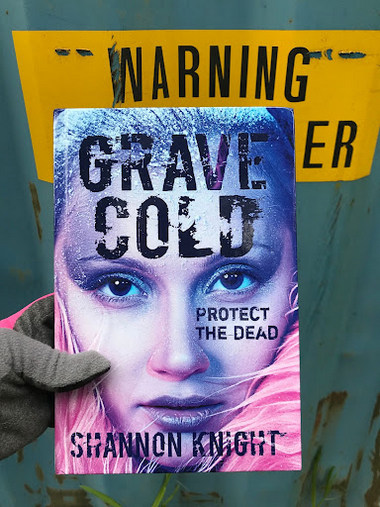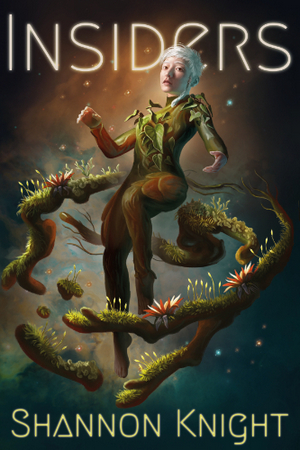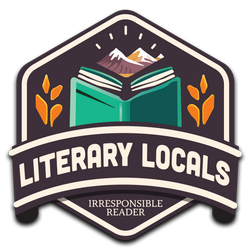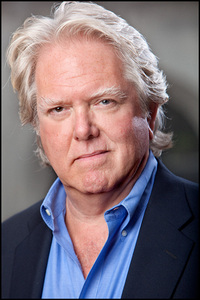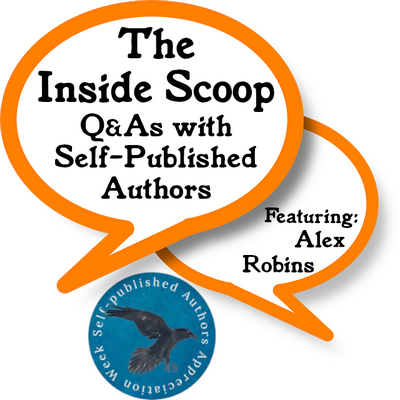
When JCM Berne’s post brought me an email from Alex Robins something gnawed at the back of my mind. It took me entirely too long to remember that I’d recently participated in a cover reveal for his book, Panacea. I was so glad to learn a bit more about his work and am eager to share it with you.
Before we get into things, why don’t you give the reader a brief introduction to you and your work.
Hi there and thank you for putting this whole thing together! I’m Alex Robins, an indie self-published author, originally from Norwich in the UK. I moved to France in 1995 at the age of thirteen, and I’ve been living here ever since! I now share my time between writing and running a tech firm close to Angers, an attractive city in the western part of the Loire Valley.
I’ve written two series. The first is called the War of the Twelve, a fast-paced, action-packed epic fantasy spanning four novels and a handful of short stories. The second is The Ruined Gods, an Ancient-Greek inspired fantasy trilogy. The first book Panacea, is out right now and entered into this year’s SPFBO contest, with the second book releasing in September and the final part sometime early next year.
What kind of costs are associated with self-publishing a book? Do you hire one or more editors, or one editor for a couple of passes? Cover artist? Anyone to help with layout, design, etc.? Beta readers? Or do you take it all on yourself? Are you actually making any money at this, or are you still focused on breaking-even while building an audience?
That’s a tough question to answer because it depends on what sort of author you’re looking to be. Do you want to be financially successful? Read by thousands but lose money? Write what interests you? Write what sells?
Depending on your choices, your budget will vary wildly.
There is one indubitable, irrevocable fact that I’m sure no other indie author will dispute (if they do, we’ll have to settle our grievances in single combat): your book will not sell well or be well-received if it hasn’t been professionally edited and doesn’t have a professional-looking cover.
There are a few very (very!) minor exceptions but for the most part, that’s the deal-breaker.
If your book is the best thing since sliced bread but you mocked up the cover yourself in Microsoft paint, no one will ever know how good it is because no one will be drawn to the cover.
Conversely, if your book’s cover was designed by the greatest artist who ever lived but has five typos, six grammatical errors, and two repeated sentences on the first page, people will buy it … but they won’t finish it, and may even leave a bad review.
An editor will set you back several thousand dollars per book. Editors specialize in one or several different facets of revision too (from development to proofreading), so your manuscript may need more than one editor depending on what you are looking for.
You can find some great professional covers for as little as $300, but these will be using manipulated stock art so you have to be okay with the fact that your cover will not be unique (or at the very least, parts of the cover may be reused for something else).
Hiring an artist and layout designer for a truly unique cover is much more expensive, around $1500-$2000 at the very minimum.
Those are the two major areas I would personally recommend investing in. Optionally, you can also set aside funds for proof copies, an internet site, a mailing-list builder, and marketing.
I invested heavily in all of these and it took me roughly a year to break even on my debut novel, but that length of time is going down with subsequent releases.
Are there tools, mentors, websites you’ve found to help you through this process? Or did you stumble through blindly on your own?
One of the great things about self-publishing is the altruism of fellow authors. I would have never been able to publish my first book properly without their help.
Ryan Cahill started publishing more or less at the same time as me and has gone on to sell over 50,000 books. He wrote a great article on what worked for him that I still refer to occasionally: Things I Wish I Knew When I Started Self-Publishing
Kindlepreneur is a wonderful resource for anyone publishing digitally, and they host a smorgasbord of useful tools including Publisher Rocket and Atticus: https://kindlepreneur.com/
David Gaughran is a well-respected marketing guru who had a ton of good advice available for free on his site, and if you sign up for his newsletter you can get a whole lot more, including free books on publishing and marketing: https://davidgaughran.com/
There are many, many others, but this is a good start!
How do you juggle marketing/PR/etc. with writing new work? (along with day jobs, family, hobbies, etc., etc.)
It’s incredibly difficult. I don’t really get to choose when I write, as professional and family obligations come first. My more-or-less only writing time is late in the evening, once the kids are in bed and I have spent some time with my wife.
As I touched on in the previous question, I think very early on a self-pub author needs to decide whether they are writing for money, or for something else. For me, it was (and still is) all about the escapism that writing brings. Financial gain and recognition come second to that. So, I always prioritize writing first, then anything else when I have time.
Have you thought about trying to get a deal with major (or indie) publishers for upcoming works, or are you planning on sticking with self-publishing?
To be honest, when you see and hear how a lot of traditionally-published authors are being treated today it would have to be a massive check to pull me away from self-publishing.
Odds are, you’re doing this from love/passion, not to pay the bills. What keeps you going? I’m assuming there are more “who”s than “what”s, actually–who is it?
Writing is just so incredibly cathartic for me I don’t really need any external motivation. Whenever I’ve had a difficult day, I open up my laptop, dive into my latest draft, and all the worries of the world fade away
Thanks for your time and participation! Hope you enjoyed it! And do know that there are many of us out here who appreciate and applaud what you do (and our number is growing!)
Be sure to check out all of Alex Robins’ work! (if only for the covers…money well spent, there)
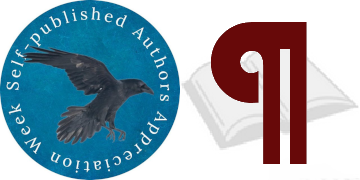
Clker-Free-Vector-Images from Pixabay
The 2023 Self-Published Authors Appreciation Week Logo was made by Witty and Sarcastic Book Club


